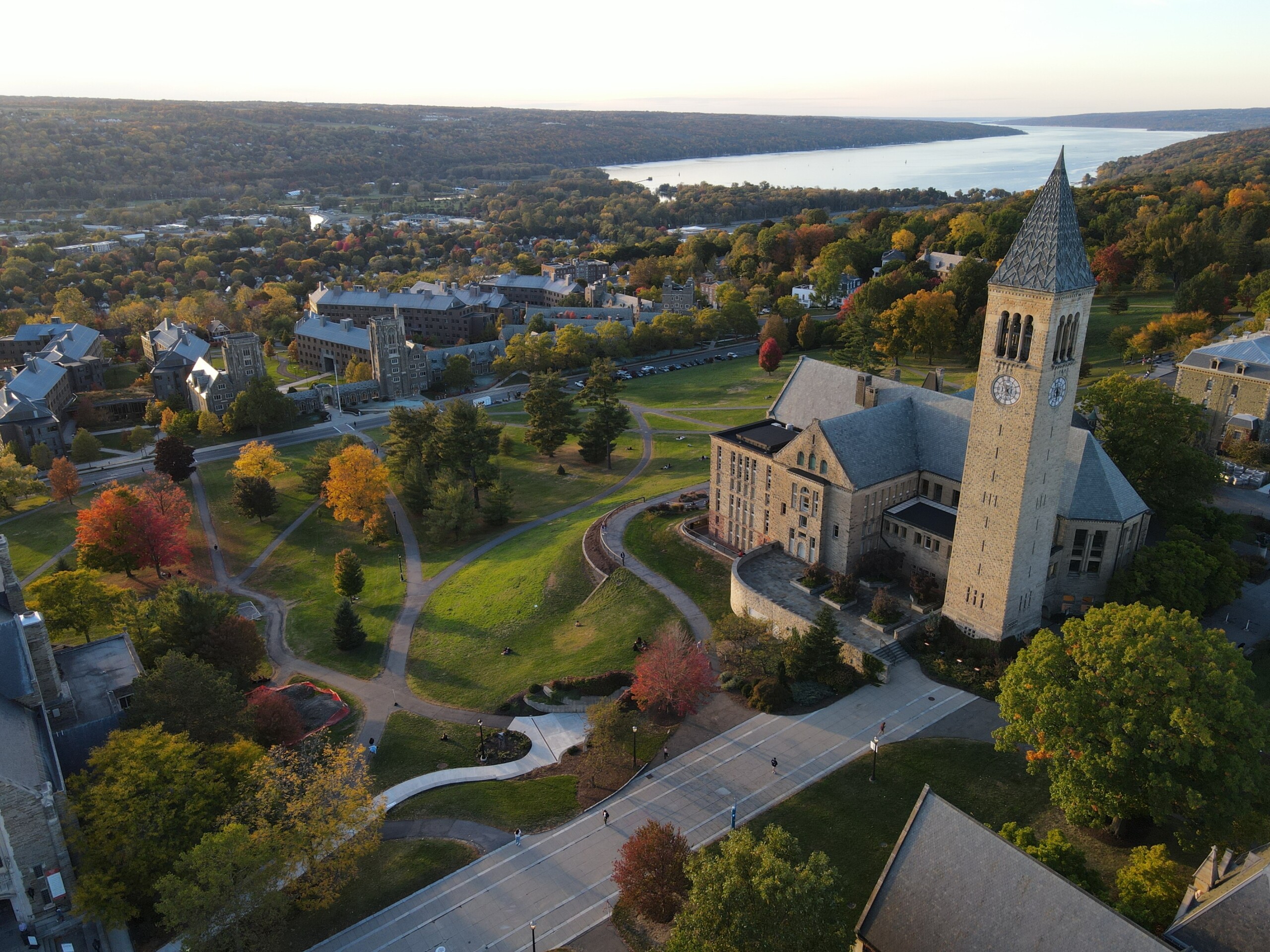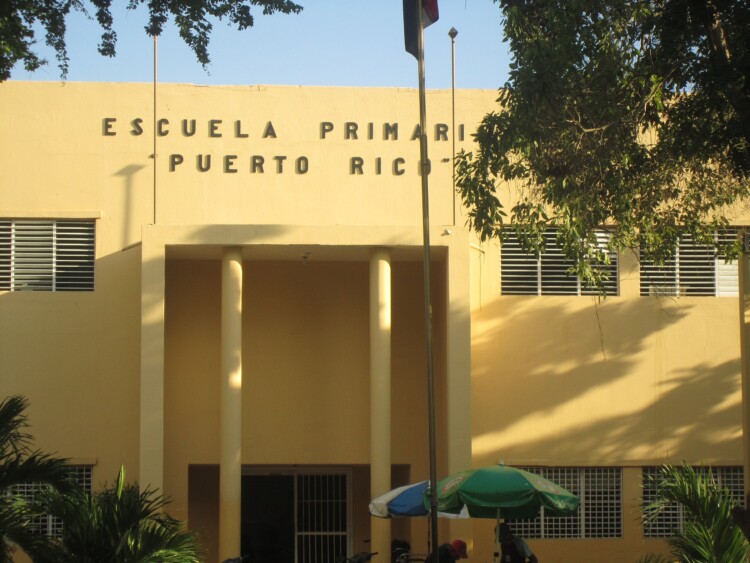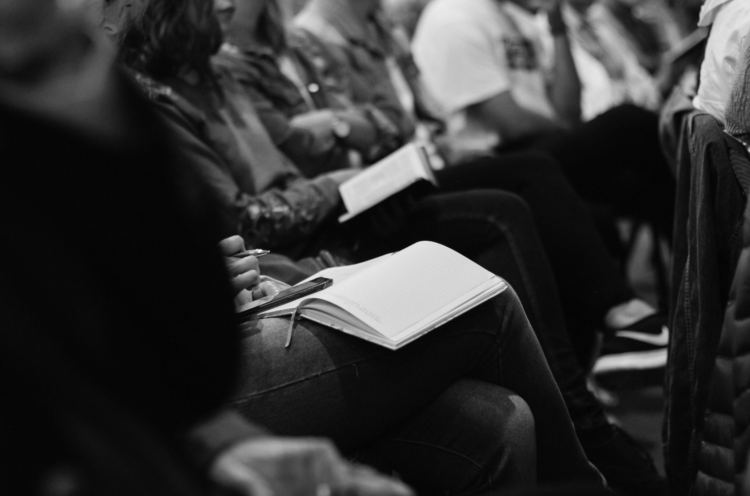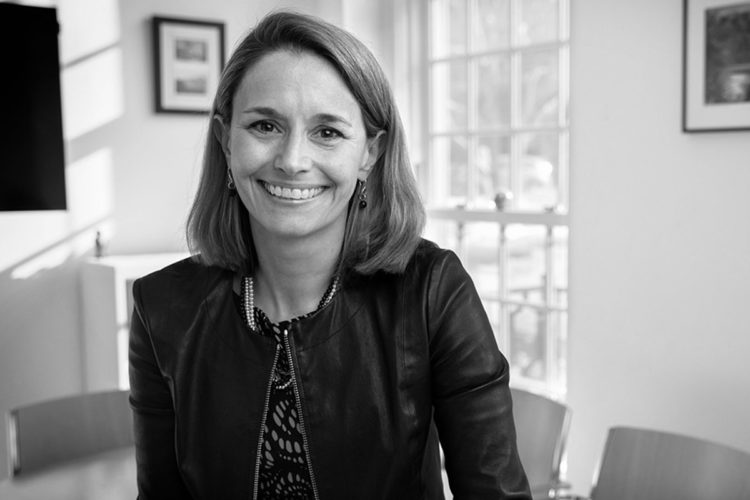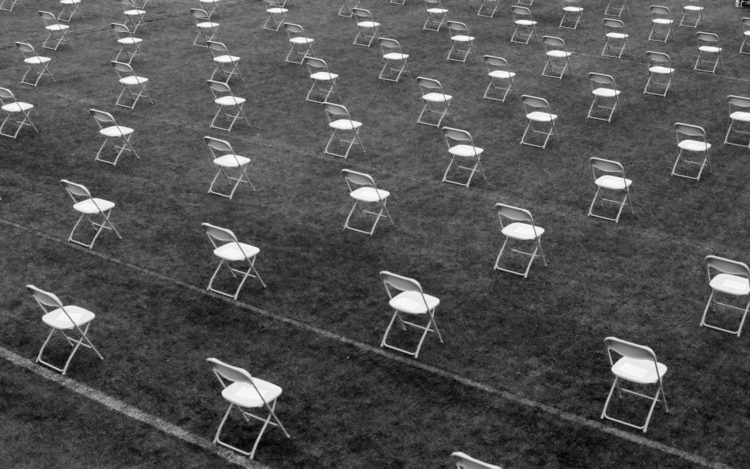One of the namesake challenges of the Institutional Challenge Grant is creating structural changes within research institutions in ways that value research-practice partnerships. In other words, we ask that applicants “propose a feasible strategy for institutional change that addresses observed structural, motivational, and financial barriers that inhibit research-practice partnerships at their institution.” While we do not require deans to be principal investigators or Co-PIs on Institutional Challenge Grants, they can nevertheless support and champion institutional change in ways that others can’t.
We recently spoke to two deans about their roles in fostering institutional change at their universities: Gautam Yadama, Dean of the Boston College of Social Work and the PI of a 2020 Institutional Challenge Grant, and Katherine Schultz, Dean of the University of Colorado Boulder School of Education and a co-PI on a 2019 Institutional Challenge Grant. Here, in a conversation edited for length and clarity, we discuss the changes they intend for their respective schools, the concrete steps they are taking to encourage faculty to participate in engaged research, and the challenges they are navigating along the way.
Can you tell us about your Institutional Challenge Grant?
Gautam Yadama:
The Institutional Challenge Grant that was awarded to us is an evaluation of an intervention, developed by our partners, United Way of Massachusetts Bay and Merrimack Valley, and FamilyAid Boston, to address early homelessness, to prevent family homelessness, and reduce disruption and mitigate adverse educational and social-emotional outcomes for youth in Boston public schools. We are evaluating an intervention in which they’re going to try and provide services upstream to delay or even prevent homelessness. Of course, as timing would have it, we got this award in March 2020, so an additional challenge was added to the Institutional Challenge Grant called the Pandemic. We’ve been working with our partners to address this at the same that agencies such as FamilyAid Boston have been flooded with families at risk of becoming homeless.
Katherine Schulz:
We partnered with Denver Public Schools and formed what we call the Teacher Workforce Collaborative, which is a research practice partnership. The goal of the partnership is to narrow Denver’s large and persistent achievement gap by strengthening the district’s teacher workforce. We’ve worked collaboratively with the research office in the Denver Public Schools to share skills that will give them an ability to understand what the distribution of what we call effective teachers is like and ensure that we attract and retain top teachers in schools serving students from historically underserved populations of Denver.
Prior to this competition, how would you characterize the state of engaged research at your institution?
KS
One of the reasons I came to CU Boulder was the strong interest and tremendous amount of expertise in research-practice partnerships among the faculty. I was very lucky in many ways that the goals of the School of Education, although not necessarily the whole university, were strongly aligned with my own goals as dean. [This alignment] opened up possibilities for me before this grant—for instance I used start-up money from the provost to establish a small seed grant process that focused on place-based partnership research in three geographic areas. That really forms somewhat of a basis for both spreading the work across the school, but also building the project that was generously funded by the Foundation.
I was very lucky in many ways that the goals of the School of Education, although not necessarily the whole university, were strongly aligned with my own goals as dean
GY
When I arrived at Boston College six years ago, I already had over 25 years of community based translational research experience at a different university. But a key element at Boston College was its strategic direction to impact communities in Boston and around the globe. Specifically, the School of Social Work was looking to deepen its engagement in place-based work and translational research, which aligned very well with my own experience. But it was a challenge for me to come here and build that further and deepen that approach. When I arrived here, I took very seriously both the strategic directions that BC as a university had set for itself and what the School of Social Work wanted to do under those strategic directions. Within a week of arriving, I began building bridges with community partners. United Way was the first organization that I began talking to, along with Catholic Charities and Mayor Marty Walsh. Walsh happened to be a BC grad, so I started connecting with the mayor’s office. This is how the university/school alignments really provided me the avenues to write the proposal for the Institutional Challenge Grant.
How has the Institutional Challenge Grant helped build on the strong foundations you’ve both described?
GY
Because I had already started building bridges with community partners, the moment the Institutional Challenge Grant came to my attention, I picked up the phone and called United Way. It was not a one-off conversation. They said they were in discussions with FamilyAid Boston to test this upstream intervention to avert homelessness to address young people’s educational outcomes and social emotional well-being. All of this was happening at the same time as our school’s strategic directions were being developed by the faculty. One of the cardinal principles of that strategic direction was the translational impact, and the key to that was a decision to address diverse populations and to take interventions that have not been tested with populations that really need evidence-based interventions, adapt them, and really do any research that also has translational science and translational impact possibilities. These three goals, which undergirded our strategic directions, were aligned with the Institutional Challenge Grant and what United Way was proposing, and that allowed me as a dean to start thinking about our Center for Social Innovation in the school, which was being redesigned as part of the strategic direction to address complex social challenges. We wanted to bring novel approaches. We wanted to seed faculty research through incentives. And if we demonstrated some initial gains from those pilot projects through the Center for Social Innovation, we’d be able to go to a broader set of donors and others to leverage more resources to continue that.
KS
One of the things that’s so exciting about this grant is its focus on institutional change. From the very beginning I was really interested in thinking about structural change that could support these kinds of research. The research was already going on, but there weren’t necessarily the structures to continue to support it. The first way I started working on it was through revising the Reappointment, Promotion, and Tenure guidelines to reflect support of engaged research. I started this before we got the grant, but the grant allowed me to do it in a more systematic and sustained way. It wasn’t very difficult to change the guidelines within our school; they hadn’t been changed in 20 years, so there was already support, and people welcomed the conversation .
The research was already going on, but there weren’t necessarily the structures to continue to support it. The first way I started working on it was through revising the Reappointment, Promotion, and Tenure guidelines to reflect support of engaged research.
The next step was to educate the university about what we were talking about. In the Reappointment, Promotion, and Tenure guidelines, one of the things that we did was talk about the length of time that it takes for faculty, especially junior faculty, to develop the kind of deep partnerships that Gautam is talking about, and how that doesn’t necessarily align with typical tenure clocks. We added language about both that and about public scholarship to make the research that was coming out of these research-practice partnerships more accessible to a wider range of audiences. In our school, there is an opportunity for deans to meet with the Provost Council to educate that committee about the promotion and tenure standards of each school. I use that venue each year to talk about research-practice partnerships. And it’s been interesting to see how they’ve grown across campus.
The second way that we tried to implement structural change has been much more difficult. From the very beginning, I had been interested in this idea of a research- practice professor, which was well received by both the provost and the director of research. Unfortunately, the pandemic came and slowed down that initiative. What’s been interesting, though, is that in some ways we’ve piloted that role without the structural change; i.e., we have a research professor for whom we’ve created a position that’s somewhat like a research- practice professor.
What are some of the barriers that you have encountered, and what steps you’re taking to overcome them?
KS
I think that one of the greatest barriers is sustaining the partnerships over time. The project that’s funded through this grant has been sustained, and I suspect will be sustained, over time. Our school does have some sustained relationships with Denver Public Schools; one is twelve years old, which is long for a research-practice partnership. We’ve had turnover of every single position, so that thinking about how to maintain and nurture partnerships through that transition can be very difficult. The second difficulty is the barrier that we encountered when making change in positions or creating new positions, particularly in a public university where there’s a lot of layers of bureaucracy to go through, including our regents who are politically elected. Talk about translational research—that’s been an interesting challenge, too. It will be once we get up there.
GY
I think there are a couple of challenges that a dean must anticipate in accomplishing this kind of translational work with community-based research partnerships. One is, how do you get a culture within your faculty to value it? And that means you need to have not only internal discussions, but as I said, the strategic directions that we collectively agree on must reflect the impact we want to have on communities. Furthermore, you have to hire commensurate with that strategic plan. So that’s what I went to work on as the dean. I saw two things that I must do: I must enable my faculty to really reach the goals they have set for themselves and I must advocate for my school. I have shamelessly advocated for faculty positions and cultivated faculty that are doing translational research around the country and recruited them. I have also worked with the provost very closely to get the resources to set up startup funds. All of this signals to the faculty that translational research is the game, and here’s a set of funds for you to get going on that even before you get your external grant.
the only way to overcome the challenge of collaborations is to grow the depth of those collaborations
The other big challenge is maintaining and growing collaborations, because the only way to overcome the challenge of collaborations is to grow the depth of those collaborations. So, for instance, at this point, United Way is working with us on a very large project that came out of this grant to work and address the needs of gateway cities around Boston, and we have donor funds, and United Way of Boston signed on to work with us at BC. And that is now going to further expand this collaboration. And with FamilyAid Boston, we’re working on sequential intercept mapping around services for homeless families.
Does the Institutional Challenge Grant require that a dean be a principal investigator or a co-PI?
Adam Gamoran:
The dean can be a crucial champion, both in the partnership role and in the institutional change role. That being said, it is not a requirement that the dean be the principal investigator or co-PI; there is no fixed or set role for the dean. The PI needs to be able to demonstrate the ability to be influential within the university, because institutional change is hard. The applicant needs to provide a letter from a high ranking official in the university. It’s often the provost or the vice chancellor for research that acknowledges the goals and expresses understanding of what’s being asked and commits the resources for the one-for-two match on the mid-career fellows. But in many of our successful grants, the dean has played a central role.
Can you talk about how you as a dean support the Institutional Challenge Grant at your institution?
KS
Similar to some of the things that Gautam has said, I helped to open up the doors for the Denver Public Schools. At the beginning of the grant, both of the faculty were relatively new and I and others had connections with the former superintendent. But my role is much more important within the institution because of the kinds of university-wide structural changes that we wanted to make. I, of course, supported the faculty in writing the grant, but it’s their grant. My role was much more to lead the institutional change part, though, again, the faculty have been instrumental in that as well.
We’ve tried to partner with a number of different multidisciplinary institutes across the campus. So, I’ve really thought about this work, not only in shifting our practices, but really trying to encourage the whole university to think about this as part of an outreach goal as a public university in Colorado.
GY
There’s a selection bias here, in the sense that certain deans like Kathy or myself, and many others who have received this grant, might be self-selecting by saying I need to play somewhat of a role here because there are going to be institutional barriers, or how can I use my position to deepen and forge new partnerships. That’s how I’ve used my role, not so much to do the day-to-day research, but to make sure that this collaboration, not only this project, seeds a set of ideas that will blossom from the Institutional Challenge Grant. And when it comes to data agreements and so on, where if it really becomes difficult entering into with legal counsels on both sides, it helps the team to have a dean in the discussion. And the last point I wanted to make is growing the ecosystem within the school to indicate to ourselves in the school and the university that this is more than a one-off project, but consistent with the direction of the school. This is something only a dean can do, and we’ve been able to do that.
Could you talk about how your applications were developed? Who was involved in developing the plan, and over what period of time?
KS
Our project was really developed by the two original PI s, Mimi Engel and Allison Atteberry, who ran drafts by me, but it was their genius to submit the research project. Then we talked and worked hard together on the institutional change aspect of it. I want to add that we were also working closely with Denver Public Schools from the very beginning, and they shaped the grant in many important ways.
GY
On our side, it was developed jointly with two faculty in the School of Social Work and Ellen Dickenson, Vice President for analytics at the United Way, the CEO of the United Way, and Larry Seamans, the head of FamilyAid Boston, and Boston Public Schools. We jointly thought about the initial idea of how the architecture and the design and then the actual research designs were developed by Indrani Saran, Assistant Professor of Social Work, and Jessica Johnson, who has experience with homelessness policy and programs in NYC. In consultation with this partner group, they developed the arguments for this kind of intervention upstream and how to study its impact. And the partners really gave us what they were already thinking about and how they would be a party to this kind of grant. I came in to read and also to say that we could repurpose the Center for Social Innovation’s pilot grants for this. We created a new position on the heels of this grant submission, the director of research and program planning, which has been a wonderful position for us.
Have you had any difficulty getting contributions of engaged faculty recognized in the promotion and tenure process?
KS
I would say we have not had any trouble at all. And the assistant professor on the grant, Allison Atteberry, not only received high praises from across the country and within our school, but got specifically high praises for her role on this particular grant. I think the understanding about the role of research-practice partnership is changing across the country as well as in our institutions.
Any advice for a dean interested in starting discussions with their faculty on competing for an Institutional Challenge Grant?
KS
I would say educating your faculty about the advantages of doing this kind of research. One of the things that I did is establish our own seed grant research protocol. And we had conversations across faculty, staff, and researchers about the kinds of projects that people could locate in different geographic areas. That was an exciting way to break down some of the silos and have conversations across the school as preparation for this kind of work.
I would definitely use the momentum of applying to this grant as a way to accelerate any internal mechanisms and structural changes you were going to make
GY
I would definitely use the momentum of applying to this grant as a way to accelerate any internal mechanisms and structural changes you were going to make. If you have that vision, I would use this grant to signal to the faculty that you’re going to put some mechanisms in place as an incentive if we get the grant, and then talk about them very specifically with your key faculty. One of the goals of this grant is to really jumpstart an institution towards these kinds of partnerships with communities. My advice would be to use that jumpstart to your advantage.
